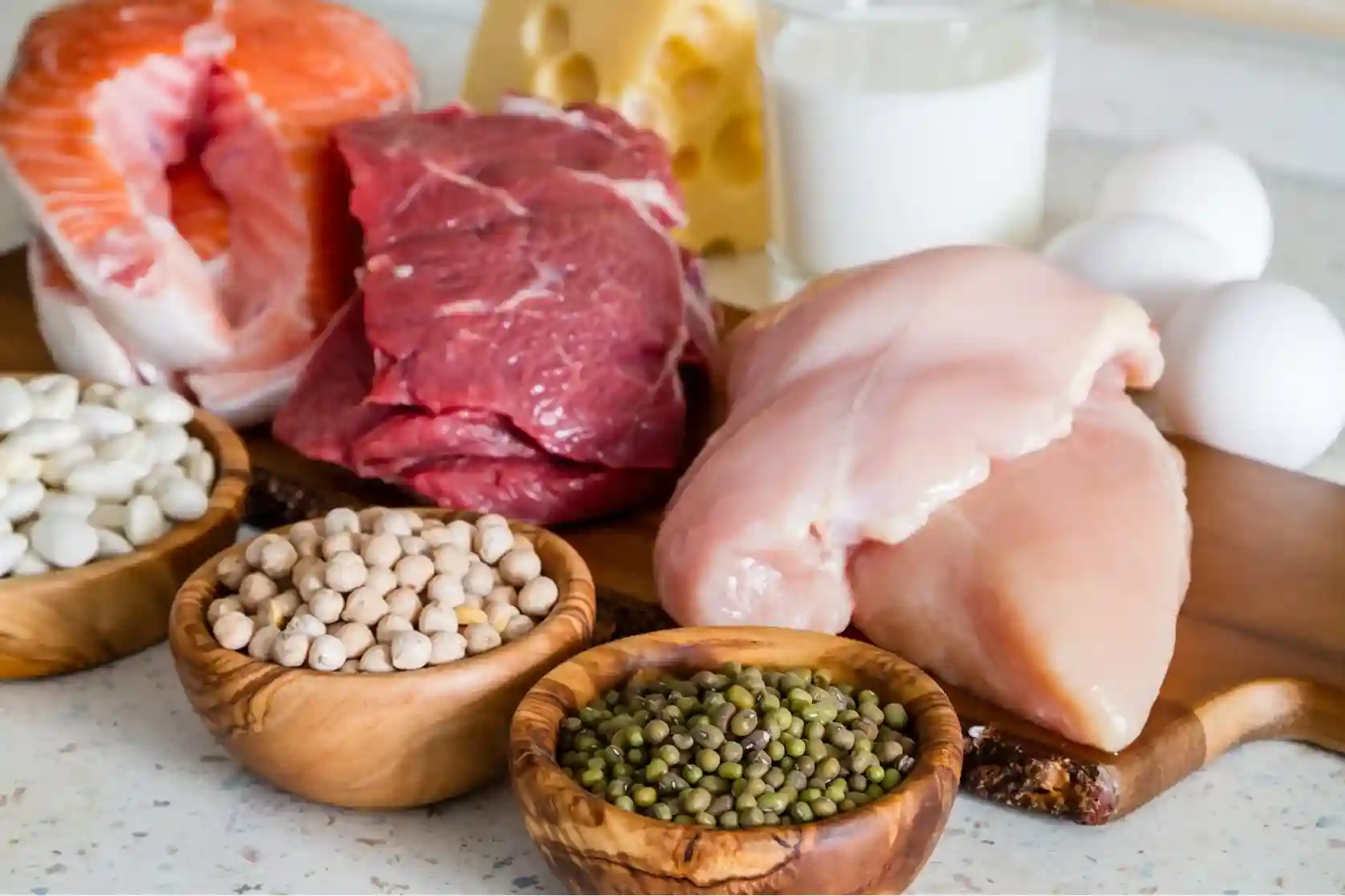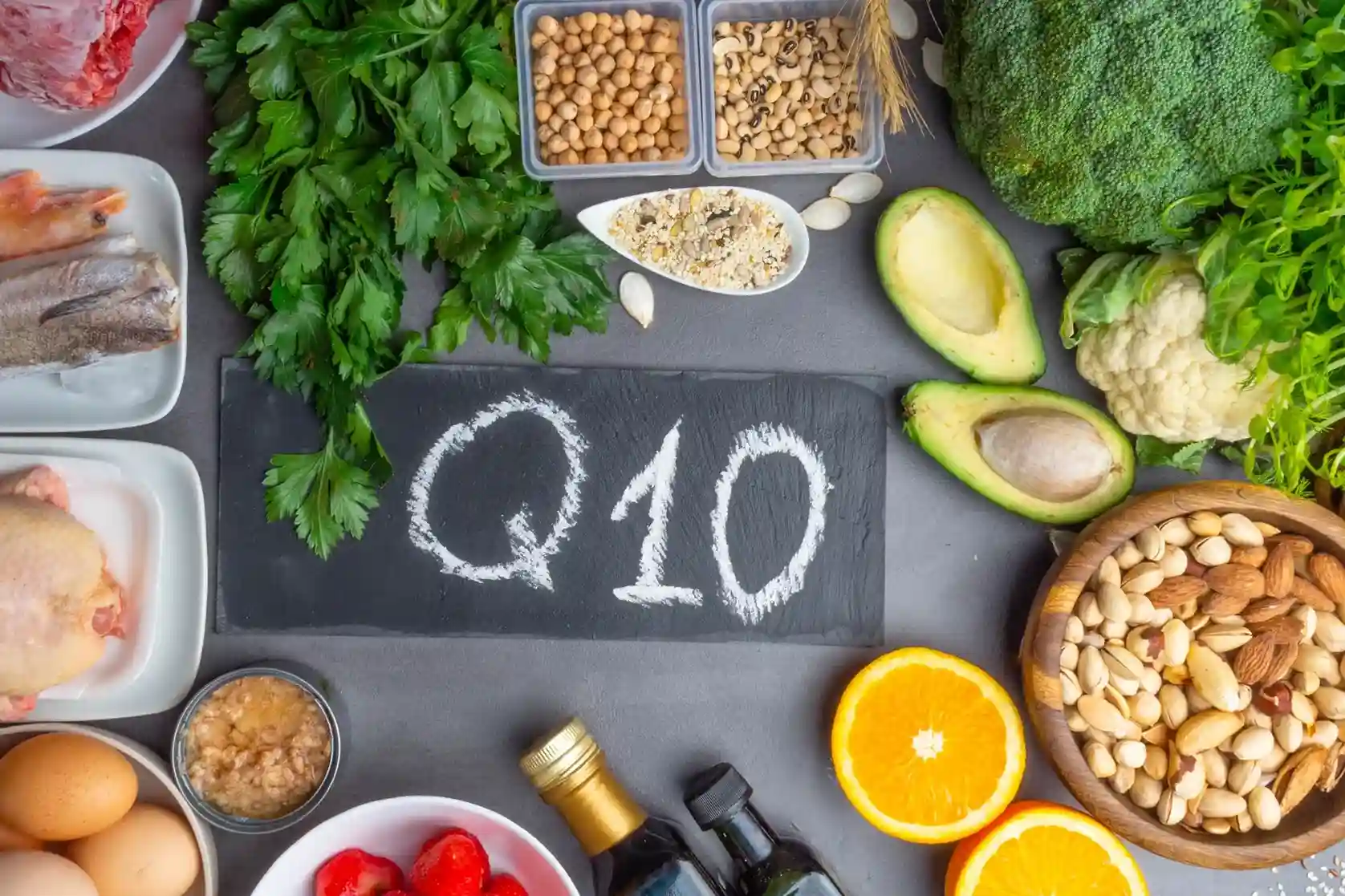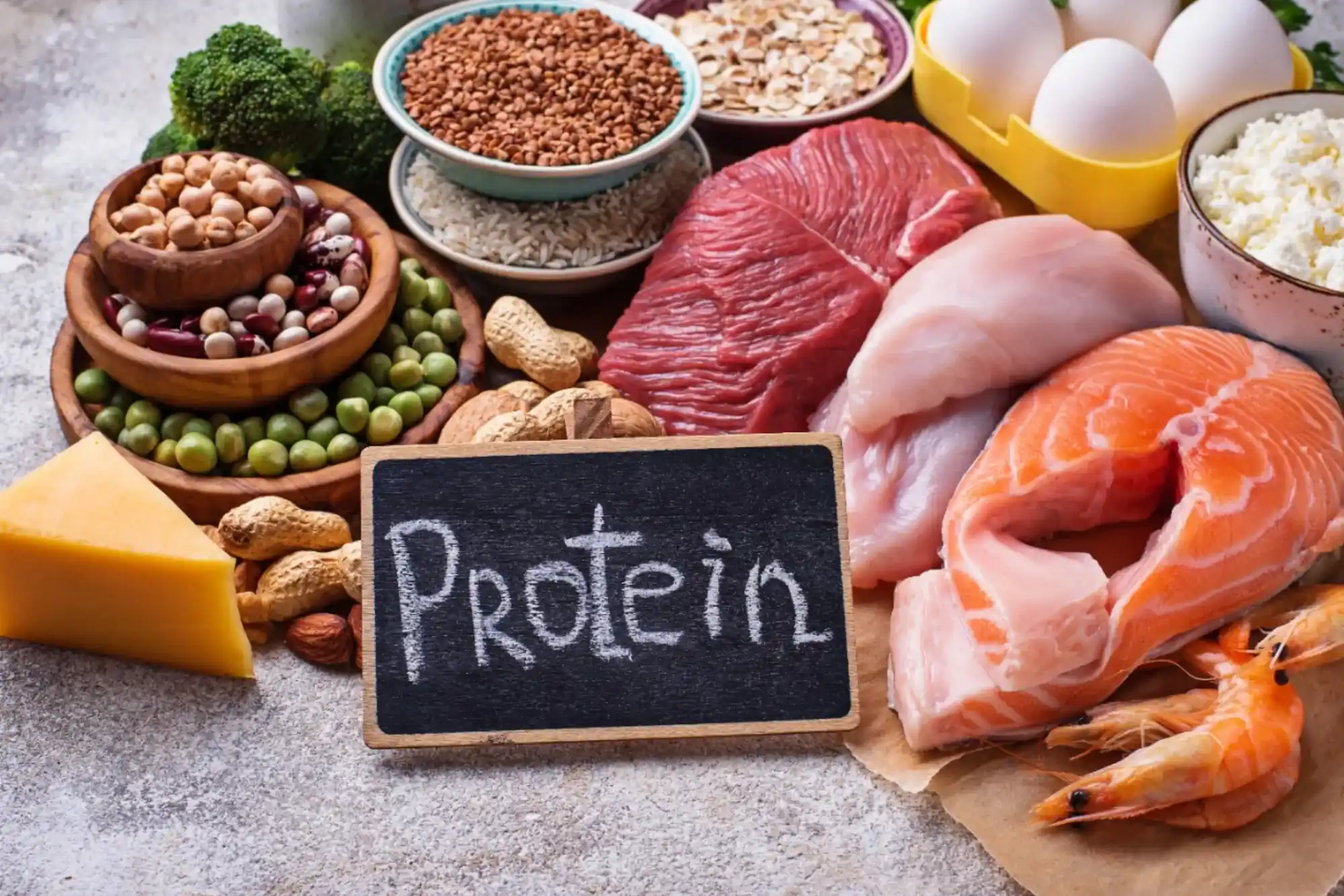In today’s health-conscious world, protein has taken center stage as a crucial nutrient for maintaining overall well-being and promoting muscle growth. Whether you’re an athlete, a fitness enthusiast, or simply someone looking to enhance your diet, incorporating high-protein foods can be a game-changer. In this comprehensive guide, we will explore the best high-protein foods, their benefits, how to incorporate them into your diet, and answer some frequently asked questions.
What is Protein?
Protein is one of the three macronutrients essential for the human body, alongside carbohydrates and fats. It is made up of amino acids, which are the building blocks of tissues, hormones, enzymes, and other vital molecules. Protein plays a key role in muscle repair, immune function, and overall cellular health.
Importance of Protein
- Muscle Building: Consuming sufficient protein is essential for muscle growth and repair. When you exercise, especially during strength training, small tears occur in muscle fibers. Protein helps to repair these tears, leading to increased muscle mass.
- Weight Management: High-protein diets can aid in weight loss by promoting satiety. Foods rich in protein tend to keep you fuller for longer, reducing overall calorie intake.
- Metabolic Boost: Protein has a higher thermic effect than fats and carbohydrates, meaning it requires more energy for digestion. This can lead to a higher metabolic rate.
- Hormone Regulation: Proteins are involved in the production of hormones that regulate various bodily functions, including hunger, metabolism, and mood.
- Immune Function: Antibodies, which are proteins, play a crucial role in the immune system, helping to fight off infections and diseases.
Top High Protein Foods
Incorporating high-protein foods into your diet is easier than you think. Here’s a list of some of the best options, categorized by type.
| Food Type | High-Protein Foods | Protein Content (per 100g) |
|---|---|---|
| Animal Sources | ||
| Meat | Chicken breast | 32g |
| Turkey | 29g | |
| Lean beef | 26g | |
| Fish | Tuna | 30g |
| Salmon | 25g | |
| Cod | 24g | |
| Dairy | Greek yogurt | 10g |
| Cottage cheese | 11g | |
| Skim milk | 3.4g | |
| Plant Sources | ||
| Legumes | Lentils | 9g |
| Chickpeas | 9g | |
| Black beans | 8g | |
| Nuts and Seeds | Almonds | 21g |
| Chia seeds | 17g | |
| Pumpkin seeds | 30g | |
| Whole Grains | Quinoa | 14g |
| Oats | 12g | |
| Barley | 12g |
Animal Sources of Protein

Animal products are often regarded as the gold standard for protein because they contain all the essential amino acids. Here’s a closer look at some top animal-based protein sources:
Chicken Breast
Chicken breast is a lean meat that is low in fat and high in protein. It’s a versatile option that can be grilled, baked, or sautéed, making it easy to incorporate into various meals.
Turkey
Turkey is another excellent source of protein, particularly the breast meat. It’s often associated with holiday meals but can be used in everyday cooking.
Lean Beef
Lean cuts of beef, such as sirloin and tenderloin, are packed with protein and also provide important nutrients like iron and zinc.
Fish
Fish like tuna, salmon, and cod are not only rich in protein but also provide heart-healthy omega-3 fatty acids.
Dairy Products
Greek yogurt and cottage cheese are fantastic sources of protein. They can be eaten on their own or added to smoothies, salads, and other dishes.
Plant Sources of Protein
For vegetarians and vegans, there are plenty of high-protein plant options. Let’s explore some of the best sources:
Legumes
Legumes such as lentils, chickpeas, and black beans are not only high in protein but also provide fiber, making them an excellent choice for digestive health.
Nuts and Seeds
Nuts like almonds and seeds such as chia and pumpkin are nutrient-dense and provide healthy fats along with protein.
Whole Grains
Quinoa is a unique grain that is a complete protein, meaning it contains all essential amino acids. Oats and barley are also great choices for adding protein to your diet.
How to Incorporate High-Protein Foods into Your Diet
Now that you know which foods are high in protein, here are some tips on how to include them in your daily meals:
- Start Your Day with Protein: Breakfast is a great opportunity to boost your protein intake. Consider options like Greek yogurt with fruits, a protein smoothie, or scrambled eggs.
- Snack Wisely: Instead of reaching for chips or cookies, choose high-protein snacks like nuts, cheese, or hard-boiled eggs to keep your energy levels stable throughout the day.
- Make Protein the Star of Your Meals: When planning meals, make sure to prioritize protein. Whether it’s a chicken stir-fry, a lentil soup, or a quinoa salad, let the protein take center stage.
- Experiment with Recipes: Try new recipes that incorporate high-protein foods. There are countless options online that can help you discover new ways to enjoy protein-rich meals.
- Meal Prep: Preparing meals in advance can help you stick to a high-protein diet. Cook up large batches of chicken, beans, or quinoa and portion them out for the week.
- Stay Hydrated: While focusing on protein, don’t forget to drink plenty of water. Staying hydrated is important for overall health and aids in digestion.
Benefits of High-Protein Diets

A high-protein diet can offer numerous benefits beyond just muscle growth and repair. Here are some additional advantages:
- Improved Satiety: Foods high in protein are more filling than those high in carbohydrates or fats, which can help control hunger and reduce cravings.
- Enhanced Recovery: Athletes and active individuals may find that a higher protein intake aids in quicker recovery after workouts, reducing muscle soreness.
- Better Body Composition: Increasing protein while reducing carbohydrates can help improve body composition, leading to a higher percentage of muscle and lower body fat.
- Reduced Risk of Chronic Diseases: Some studies suggest that high-protein diets can lower the risk of chronic diseases, including heart disease and type 2 diabetes.
- Support for Healthy Aging: Adequate protein intake is important for maintaining muscle mass and strength as you age, which is crucial for overall mobility and independence.
Common Myths About Protein
As with any health topic, misconceptions about protein abound. Let’s debunk some common myths:
You Need to Eat Protein at Every Meal
While it’s important to include protein in your diet, it’s not necessary to consume it at every meal. Aim for a balanced intake throughout the day.
All Protein Sources Are Equal
Not all protein sources are created equal. Animal proteins are complete, containing all essential amino acids, while most plant proteins are incomplete and should be combined to ensure a full amino acid profile.
High Protein Diets Are Unhealthy
A balanced diet that includes high-protein foods can be healthy, provided you choose whole, unprocessed sources and maintain a variety of nutrients in your meals.
Protein Supplements Are Necessary
While protein supplements can be convenient, they are not necessary for most people. Whole foods are generally the best sources of protein, offering additional nutrients that supplements lack.
Frequently Asked Questions (FAQs)
How much protein do I need?
The Recommended Dietary Allowance (RDA) for protein is 46 grams per day for women and 56 grams for men. However, individual needs may vary based on activity level and health goals.
Can I get enough protein on a vegetarian or vegan diet?
Yes, with careful planning, vegetarians and vegans can obtain sufficient protein through legumes, nuts, seeds, whole grains, and plant-based protein sources.
What are some high-protein snacks?
High-protein snacks include Greek yogurt, cottage cheese, protein bars, nuts, and hard-boiled eggs.
Are protein supplements necessary?
Most people can meet their protein needs through whole foods. Supplements may be beneficial for athletes or those with higher protein requirements.
How can I increase my protein intake without gaining weight?
Focus on incorporating lean protein sources, such as chicken, fish, beans, and low-fat dairy, while maintaining a balanced diet and watching overall calorie intake.
Is it safe to consume high amounts of protein?
For most people, a high-protein diet is safe. However, those with kidney issues or certain health conditions should consult a healthcare provider before significantly increasing protein intake.
What are the best protein sources for muscle building?
Animal proteins, such as chicken, turkey, fish, and lean beef, are some of the best sources for muscle building due to their complete amino acid profile.
Can I send money from Philippines to buy high-protein foods?
Yes, you can send money from the Philippines using various remittance services or online platforms to purchase high-protein foods.




